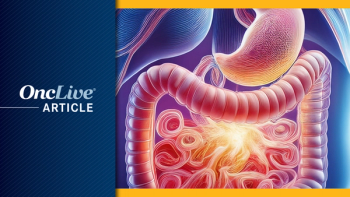
T-DM1 Approved for HER2-Positive Metastatic Breast Cancer
The FDA has approved ado-trastuzumab emtansine, also known as T-DM1, for HER2-positive metastatic breast cancer.
Richard Pazdur, MD
The FDA has approved ado-trastuzumab emtansine (Kadcyla), also known as T-DM1, for HER2-positive metastatic breast cancer.
T-DM1 is in a new class of drugs called antibody-drug conjugates. This class of drugs combines an antibody, which is able to target certain tumor cells, with a cytotoxic agent. By delivering chemotherapy through targeted means, the cytotoxicity is confined to the tumor cells while sparing surrounding healthy tissue.
“Kadcyla is trastuzumab connected to a drug called DM1 that interferes with cancer cell growth,” said Richard Pazdur, MD, director of the Office of Hematology and Oncology Products in the FDA’s Center for Drug Evaluation and Research, in a statement. “Kadcyla delivers the drug to the cancer site to shrink the tumor, slow disease progression, and prolong survival. It is the fourth approved drug that targets the HER2 protein.”
In this particular antibody drug conjugate, trastuzumab, a monoclonal antibody designed to target HER2 on tumor cells, is combined with the highly cytotoxic agent emtansine (DM1). Emtansine was developed in the 1980s, but it was deemed too toxic to be given as chemotherapy in human subjects. When combined with trastuzumab, emtansine is given in a dose small enough to be very cytotoxic to the tumor but relatively tolerable in patients. For more information on antibody-drug conjugates, view OncLive's interview with
The approval was based in large part on the results of the phase III EMILIA trial, which were presented at the European Society of Medical Oncology (ESMO) Congress in September. In that trial, patients with HER2-positive advanced breast cancer who were previously treated with trastuzumab and a taxane were randomized to receive either T-DM1 or a regimen of lapatinib and capecitabine, a standard treatment regimen for HER2-positive breast cancer.
After a median follow-up of about 20 months, the study found that patients who received T-DM1 had a 32% reduced mortality risk compared with patients who received lapatinib and capecitabine (hazard ratio [HR] = 0.68; 95% CI, 0.55-0.85; P <.001). Median overall survival was 30.9 months for patients who received T-DM1 compared with 25.1 months for patients who received lapatinib and capecitabine.
The statement from the FDA noted that the drug comes with a boxed warning, stating that the drug has been associated with liver toxicity, heart toxicity and death, and it is capable of causing severe birth defects.
Genentech, a member of the Roche Group, manufactures Kadcyla. T-DM1 is the first drug approved of many drugs that are being developed as part of its antibody-drug conjugate research program.
“We currently have more than 25 antibody-drug conjugates in our pipeline and hope this promising approach will help us deliver more medicines to fight other cancers in the future,” said Hal Barron, MD, chief medical officer and head of Global Product Development at Genentech, in a statement.
Genentech will be responsible for the manufacture and marketing of the drug. Immunogen developed the antibody-drug conjugate technology.
Verma S, Miles D, Gianni L. Updated overall survival results from EMILIA, a phase 3 study of T-DM1 (T-DM1) vs capecitabine (X) and lapatinib (L) in HER2-positive locally advanced or metastatic breast cancer (MBC). Paper presented at: 37th European Society for Medical Oncology Congress; September 28-October 2, 2012; Vienna, Austria. Abstract LBA12.



































